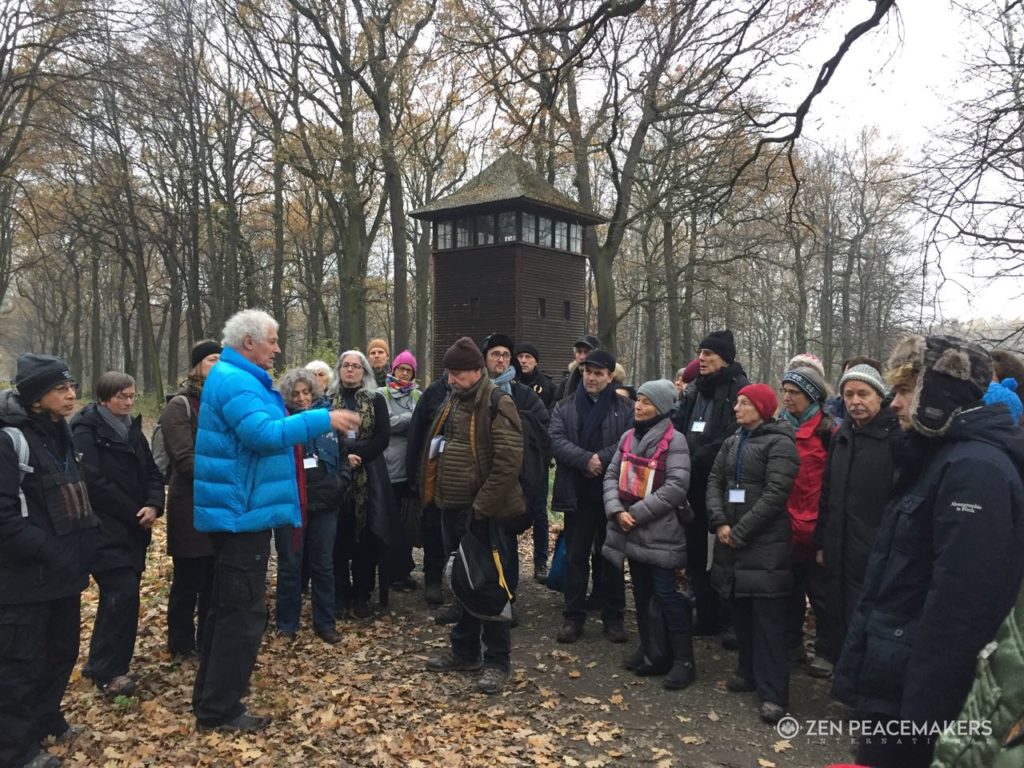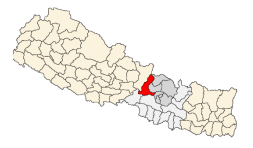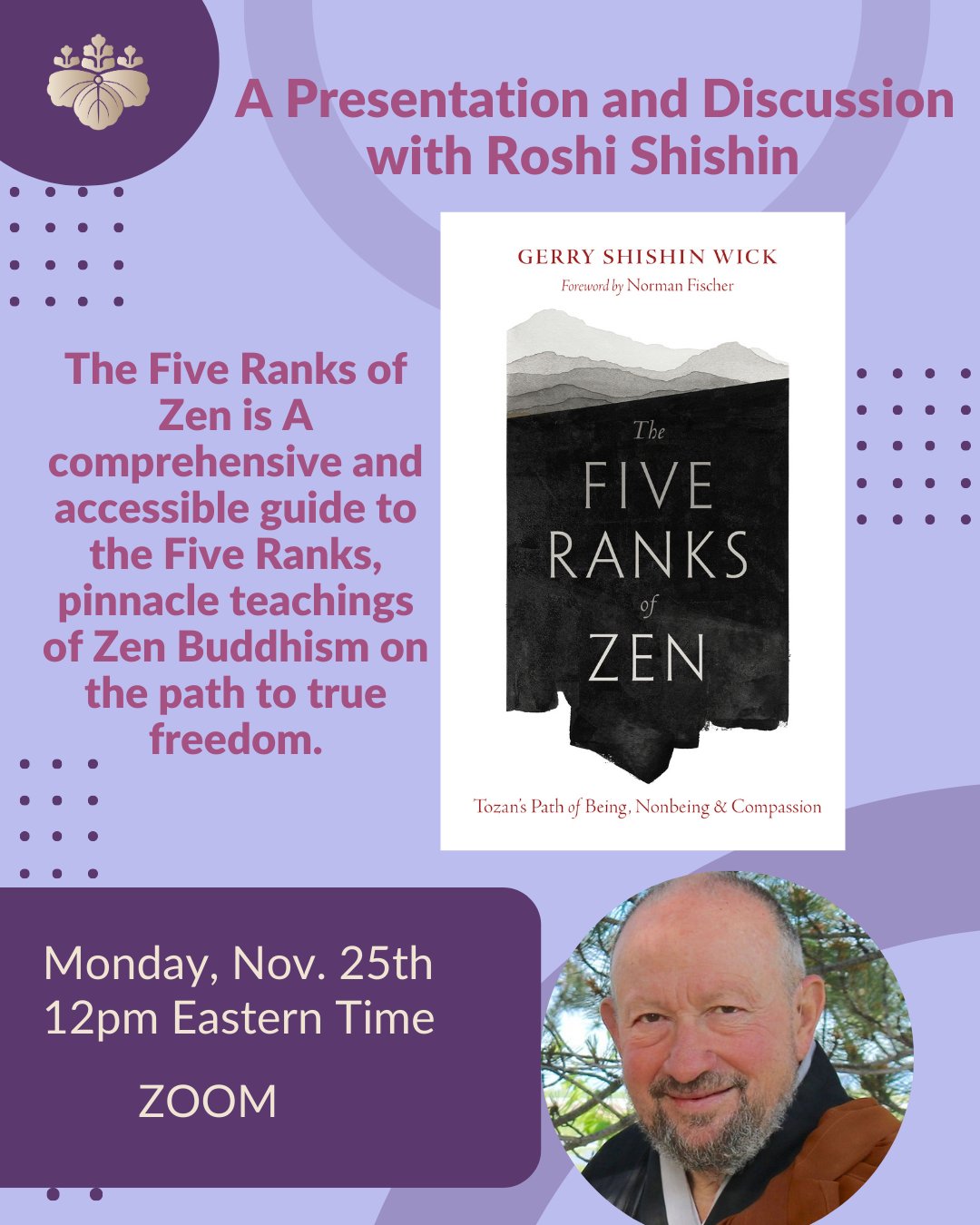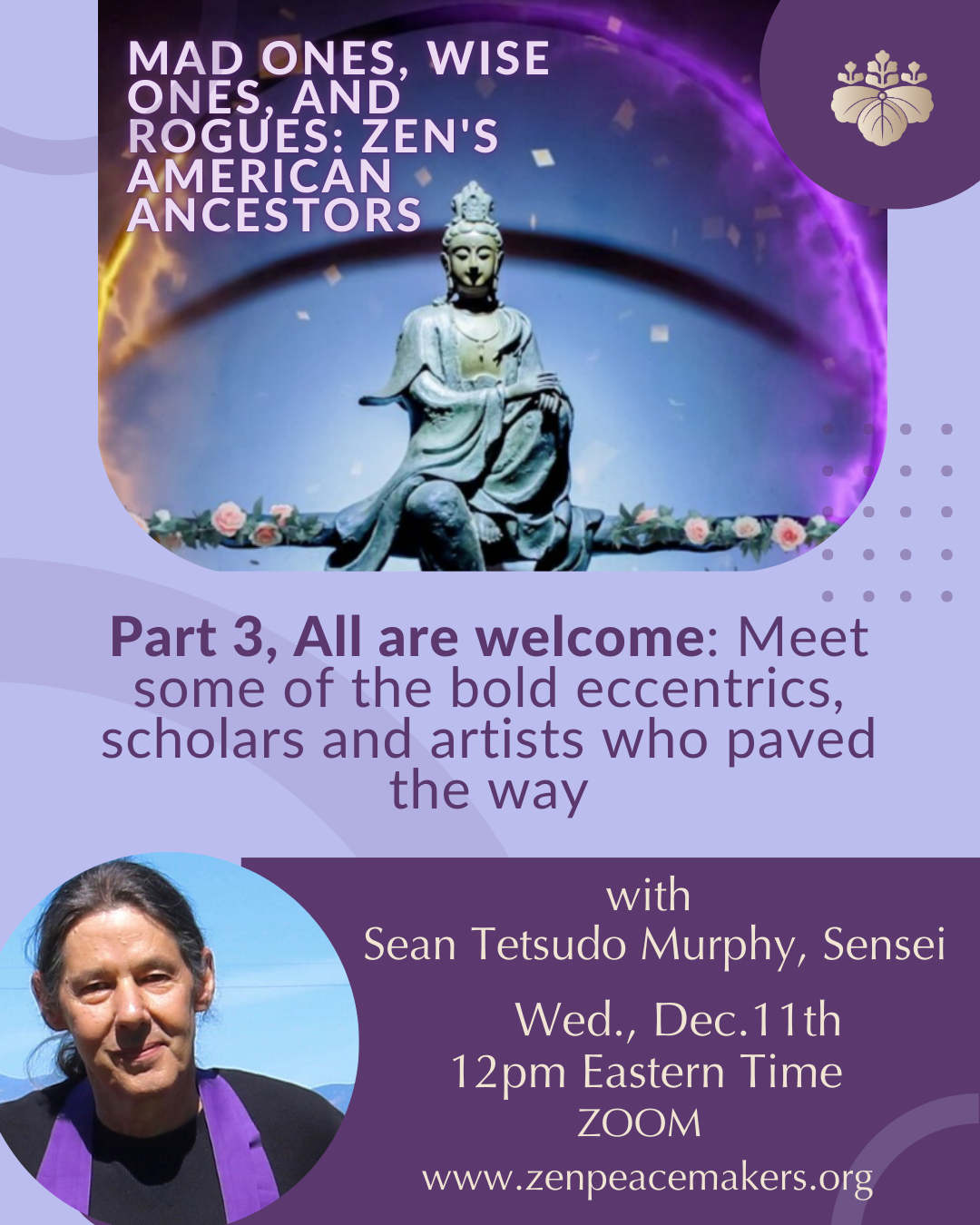By Nem Bajra
TORRANCE, CALIFORNIA, USA. In November 2017, I traveled to Auschwitz, Poland for a Bearing Witness retreat with Roshi Bernie Glassman and the friends of Zen Peacemakers. This life-changing experience taught me how to take action in the world from a deeper place in my heart. Over five days, I went through three different stages: ordinary knowing, direct experience, and action to serve the situation.
Stage 1 primarily involved learning statistics: the death of 1.3 million victims — of which this many were Jews or non-Jews, and that many were Hungarian, Polish or from other countries. At one point during the guided tours, my brain felt like it would explode if I did not take off my headphones [editor’s note: headphones are used to transmit the tour guides’ different languages] . Even in the sitting meditation, my head was filled with opinions and judgments about the holocaust, and my interpretations of the good guys and the bad guys.
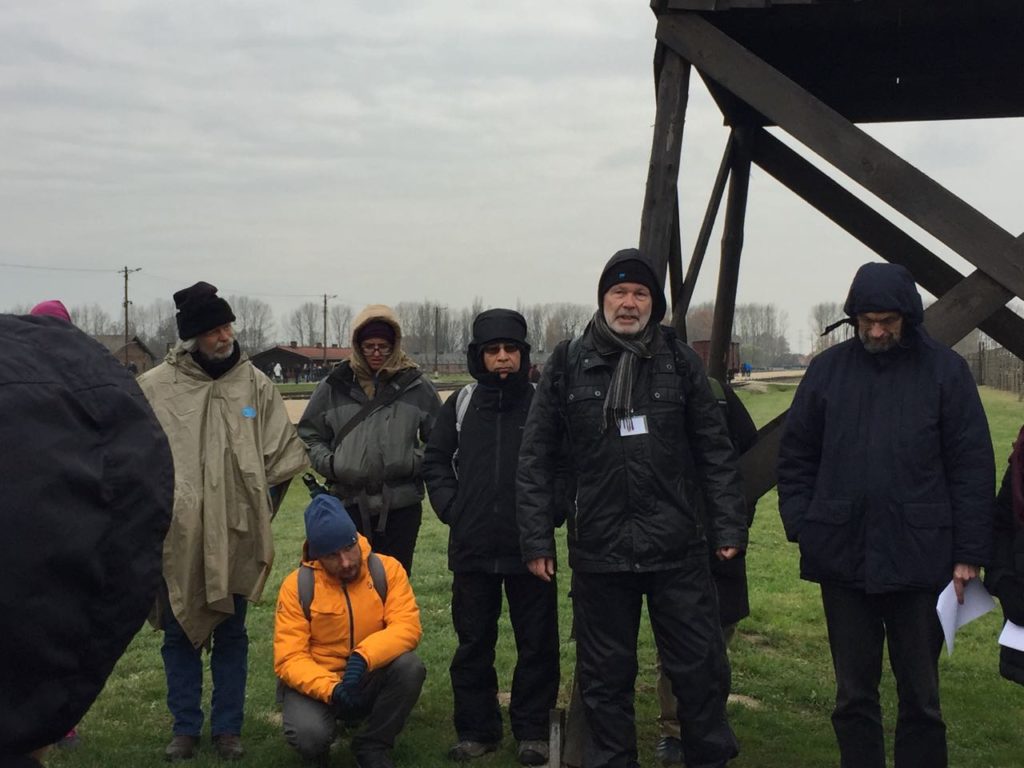
Stage 2 involved mostly direct experience. I was simply looking at objects: A photo of a naked, starving woman, waiting to be rescued. A pair of baby shoes. A briefcase with a name and address. I stood in the sauna chamber where the naked victims had walked through into the gas chamber. I stood by a big tree next to a green meadow where their ashes were buried. No explanations or interpretations. No views or judgments. I experienced sadness as sadness in its raw and pure form. In the midst of sadness and ashes, I also saw joy and life.
Stage 3 involved the reality about how I function in life based on my experiences. Stage 1 gave me a lot of the statistical information, but I couldn’t find any wisdom in it about what I can do. Instead, I felt agony. It didn’t make any difference to me whether the number of victims was a hundred thousand or 1.3 million. I could not grasp the weight, the truth behind these numbers. I was receiving this information as an outsider, and could not relate to the perpetrators or the victims.
However, stage 2 let me experience the sadness directly. It wasn’t about the cruelty of perpetrators, or the suffering of victims. It was about my own human nature — my own capacity to know sorrow, to see joy in life, and to respond with action. This experience led me to the stage 3 where I asked: Auschwitz, what can I do? The answer came back as: “Live fully. Be yourself.”
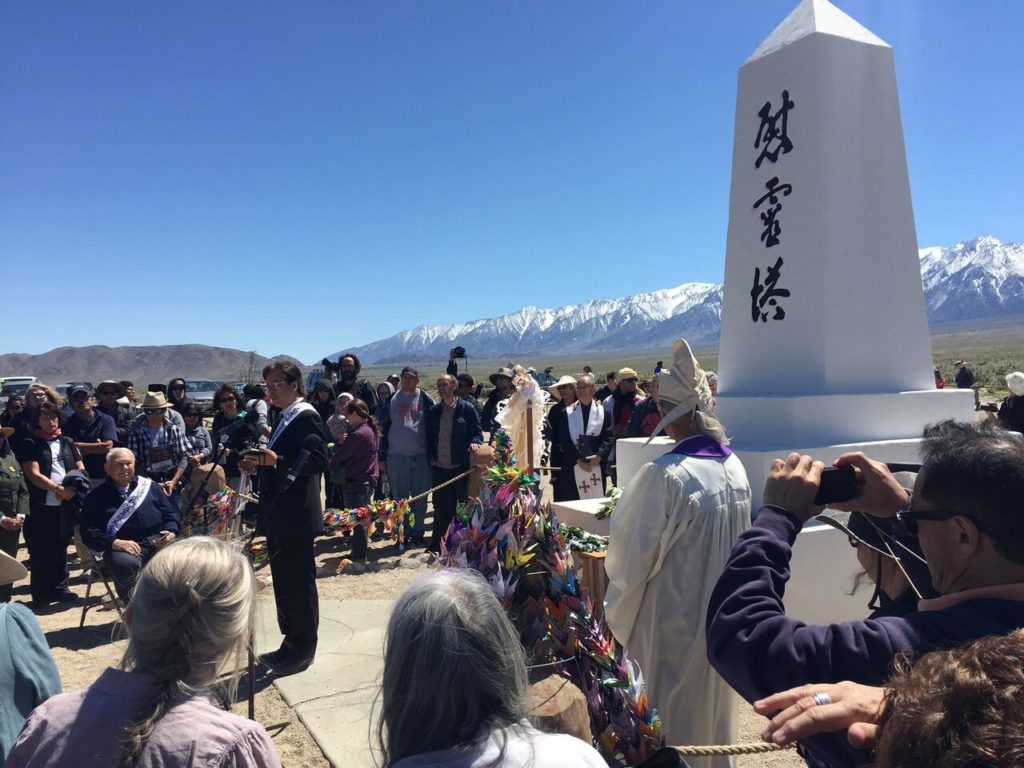
This Auschwitz retreat enabled me to move from my ignorance about the holocaust, to statistical knowledge, to a deeper experience, and to then, to my response. It shifted my perspective on how to serve the community through Mitra Path. I realize now that helping a Nepali family that had suffered from a massive earthquake was more than providing a livelihood. It was not about charity, but about understanding the one-ness of human nature by opening my heart and connecting with others. It was an action that arose from listening to human suffering, and experiencing that suffering as my own.
In 2017, we were fortunate to be able to connect with wonderful people through our Mitra Path projects. This included meeting school children and their parents in Dhading, seeing the determination of a woman supporting her family through a new spice business, helping a passionate group of female entrepreneurs launch their sewing businesses, and providing people with mushroom farming training. Out of their stories of hardship and suffering came not just hope for a better livelihood, but joy and courage for all of us engaged in the projects.
I am grateful to Auschwitz for showing me how to bear witness and connect with people from a deep place in my heart. This experience will certainly shape the nature of Mitra Path’s service to the community. Every Mitra Path project will involve an action that rises from open-mindedness and deep listening — and an action that will best serve the situation.
I am also grateful to all those who have supported Mitra Path in the past year. Your generosity and belief in our mission continues to be a humble reminder of our true interconnectedness and oneness of humanity.
May we bring joy to all!
—
Editor’s note: Nem brings these insights to his work as the president of Mitra Path, an organization dedicated to improving communities around the world by helping people start and manage small businesses. Below see a report from Mitra Path about their recent projects.
Mushroom Farming
Project Context
In early 2017, Mitra Path visited schools in Nepal’s Dhading District to see how we could partner with Shaping Young Minds Foundation to support the school children. We were welcomed with bright smiles, while witnessing a severe lack of opportunity in these communities. After our visits, Mitra Path decided to focus on enhancing the livelihoods of the school children’s parents so they could generate income while staying close to home.
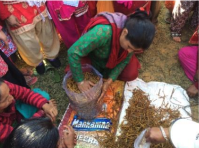 In response to Mitra Path’s interest, a local NGO in Nepal conducted a research assessment on what kind of business training would be ideal for the parents in this community.
In response to Mitra Path’s interest, a local NGO in Nepal conducted a research assessment on what kind of business training would be ideal for the parents in this community.
The following information was provided from
the NGO’s report:
Although people may be interested in starting a business, without having any knowledge in business management, most will never initiate one. The following microbusiness business training was designed for men and women with basic education from the marginalized Dalit community in Dhading District, where most make their living as wage laborers and there is scarce farmland in the area. This program first determined the most suitable and appropriate microbusiness based on the local market, available resources, interest, skills, etc. And then it provided training so the community could become more self-sufficient and raise their life standard of living.
Objectives of the Program:
- To teach the participants about suitable businesses to adopt
- To cultivate an entrepreneurial mindset and skills among the community.
- To make marginalized communities self-sufficient for better livelihoods
- To end unemployment and create self-employment.
Contents of the training
- Introduction of business
- Qualities of a successful business person
- Identifying business opportunities
- Business selection & marketing
- Business service providers
- Business cycle & planning
The NGO had initially suggested poultry farming, but after conducting the assessment report, they concluded that mushroom farming would be the best choice.
The NGO created a proposal, and Mitra Path provided funding for mushroom farming training to the parents of the schoolchildren.
Mushroom Training Workshop
The parents were abuzz with excitement to learn the technique of mushroom farming over the three-day workshop. The facilitators first explained the different types of mushrooms and which would be easy to grow at home. Then, rather than getting too much into theory, they took everyone outside and had them learn by doing.
The first step was to cut the straw in a particular way and let it soak it in water. After drying it in the shade, the straw had to be soaked again for another day. The third step was to boil the soaked straw for about an hour and then let it dry once again. The fourth step was to put the straw tightly in plastic, sprinkling in the seeds in 4 to 5 layers. Then they tied the ends and punctured holes around the bag with a sharp needle object. They placed the bag in a cool place inside the house, where they would wait 22-25 days for the harvest.
The parents were fully engaged in the training and excited that this would allow them to earn a living from their home. They were given their first batch of seeds to begin their business. The facilitator closed the session by saying: “Our training is over but the real training begin with you”.
Sewing Businesses
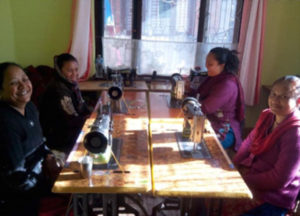
This project is designed for women from low-income communities who face enormous challenges in meeting their family’s needs. The aim is to provide access to finance for improving their livelihoods, and for providing a source of confidence and hope in rebuilding their family’s lives after the Nepal earthquakes.
Jhigu Mitra’s team (a local partner in meaning ‘Our Friends’) team has been exploring the possibilities for the Income-generating activities in low-income communities within Kathmandu Valley for several years. This project targets home-based activities such as sewing, knitting, and weaving. Jhigu Mitra proposed a number of products, of which Mitra Path selected the sewing business and donated sewing machines.
Four Entrepreneurs
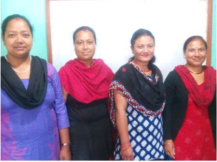
Jhigu Mitra selected four women from the low income families who were eager to start their tailoring business. In a three-part agreement between Jhigu Mitra, a local women’s cooperative and the four entrepreneurs, a proposal for sewing machine business sponsorship was made to Mitra Path.
Jhigu Mitra coordinated the program and procured the tailoring machines. The women’s cooperative explored the market and accessed a tailoring contract with local garment factories, as well as provided a tailoring work space. The four selected women took ownership of their business by jointly putting together their money to purchase an additional machine. They were also willing to take out a low-interest loan from the women’s cooperative to cover additional business expenses.
Jhigu Mitra recently provided Mitra Path with an update that the women have accessed tailoring work from a local factory and have begun initiating their work. Jhigu Mitra team will monitor the project to ensure the women will continue to earn a steady living and expand their new income-generating livelihood.
Future Projects
Jhigu Mitra is exploring the possibilities for more income-generating projects in Machhegaun and neighboring cities. [Machhegaun is a small town in Kathmandu District in the Bagmati Zone of central Nepal. At the time of the 1991 Nepal census it had a population of 2871.]
Some women from Panga have shown interest in initiating Home Stay businesses promoting local Newari cuisine and culture. The Jhigu Mitra team is planning to conduct a meeting with the interested parties as soon as possible to explore the possibilities and to run a feasibility report on the businesses they propose.
Mitra Path looks forward to supporting future entrepreneurs who are eager to start their own businesses and bring vitality to their families and communities.
 Nem Bajra was born in a Buddhist family in Kathmandu, Nepal. He received his education in electrical and computer engineering from Japan, Netherlands and USA. Nem is currently CEO and President of Calsoft Systems, an IT consulting company with offices in Los Angeles, Chicago, New York and Nanning, China. Calsoft Systems is a certified B-corp and an employee-owned (ESOP) company. As a senior member of Los Angeles Seiwajyuku, Nem has practiced Inamori Business Management at Calsoft and has received ‘Excellent Management Award’ from Dr. Kazuo Inamori. He is a member of Zen Center of Los Angeles and practices Zen meditation.
Nem Bajra was born in a Buddhist family in Kathmandu, Nepal. He received his education in electrical and computer engineering from Japan, Netherlands and USA. Nem is currently CEO and President of Calsoft Systems, an IT consulting company with offices in Los Angeles, Chicago, New York and Nanning, China. Calsoft Systems is a certified B-corp and an employee-owned (ESOP) company. As a senior member of Los Angeles Seiwajyuku, Nem has practiced Inamori Business Management at Calsoft and has received ‘Excellent Management Award’ from Dr. Kazuo Inamori. He is a member of Zen Center of Los Angeles and practices Zen meditation.

